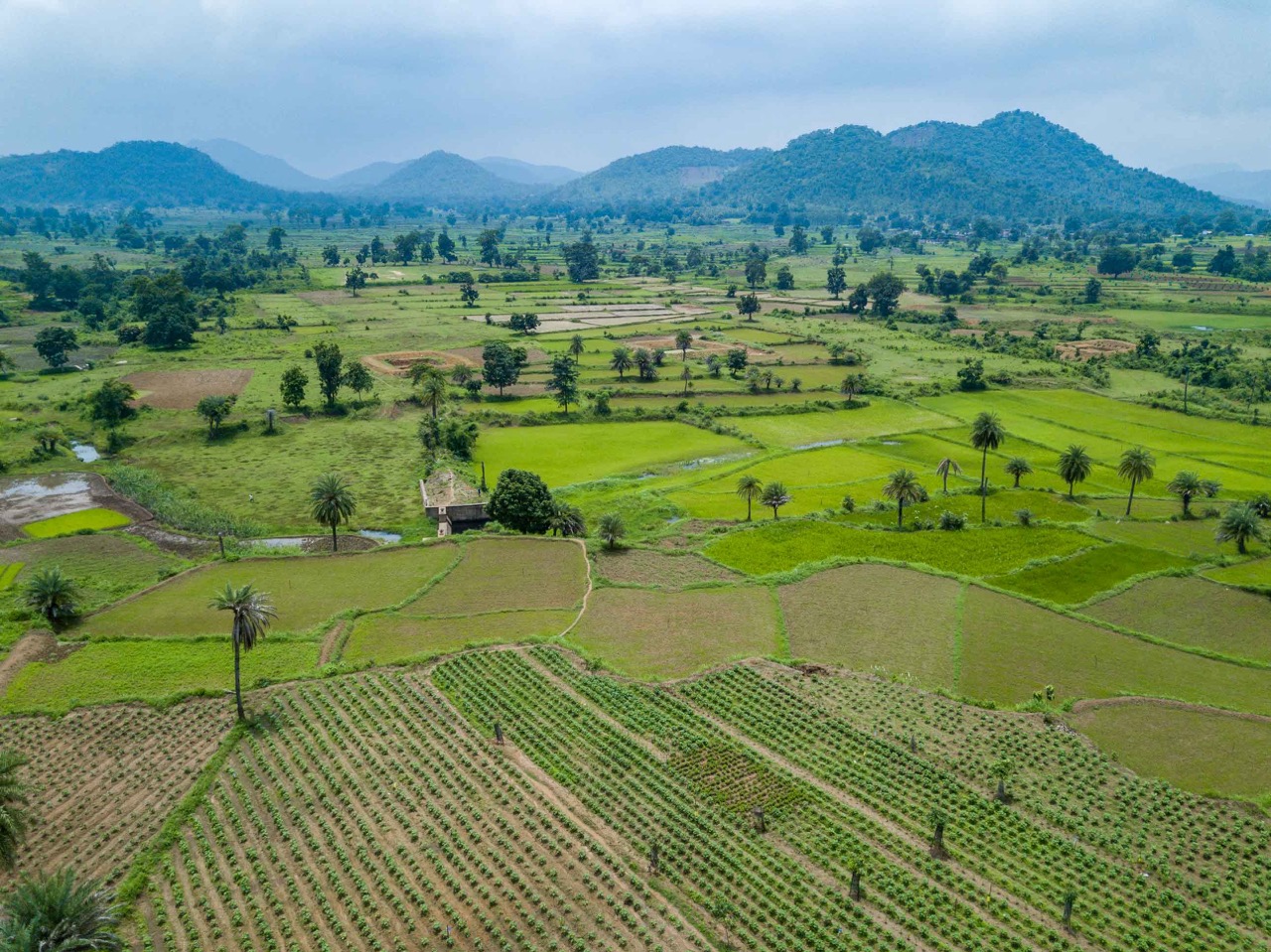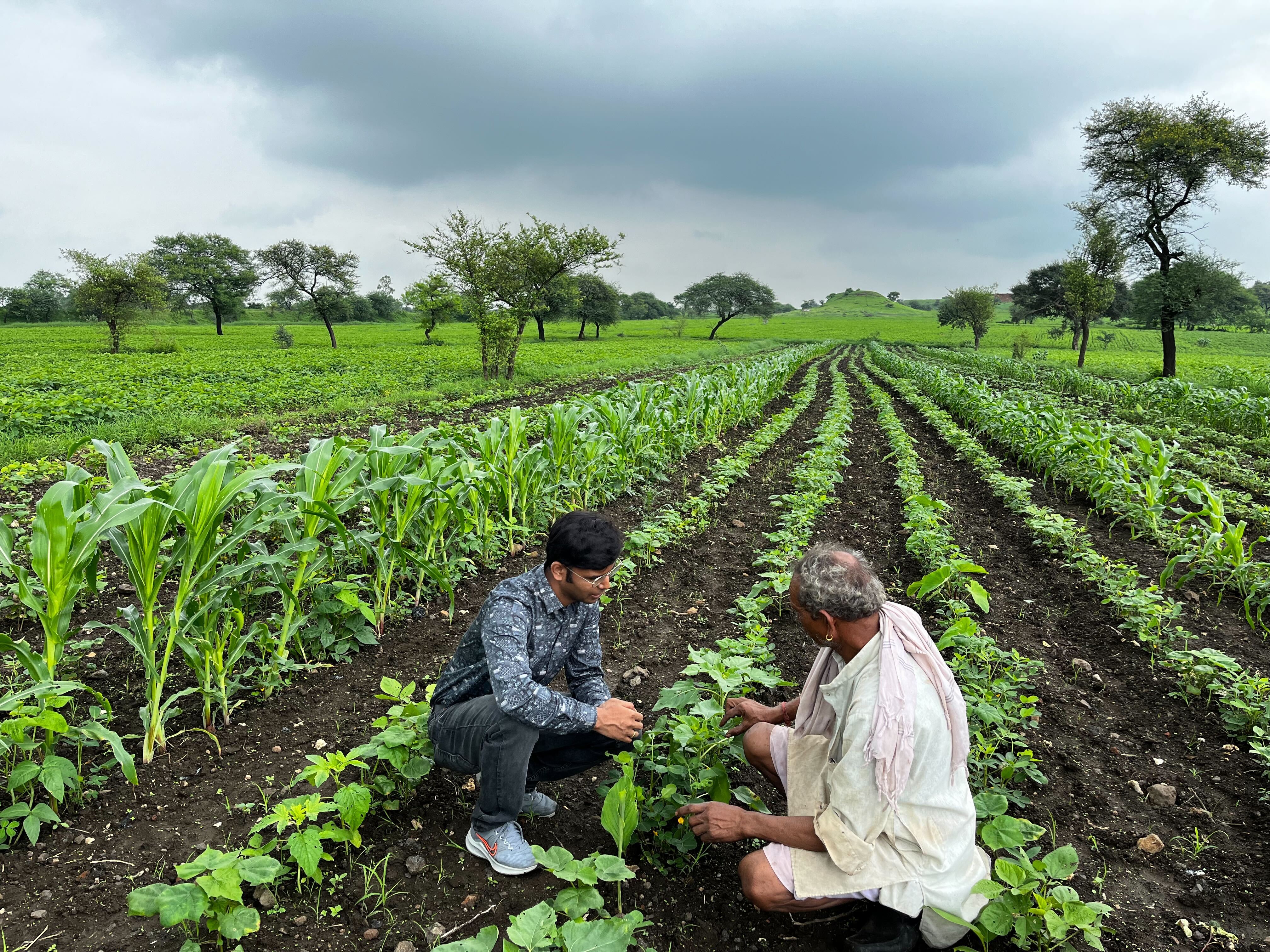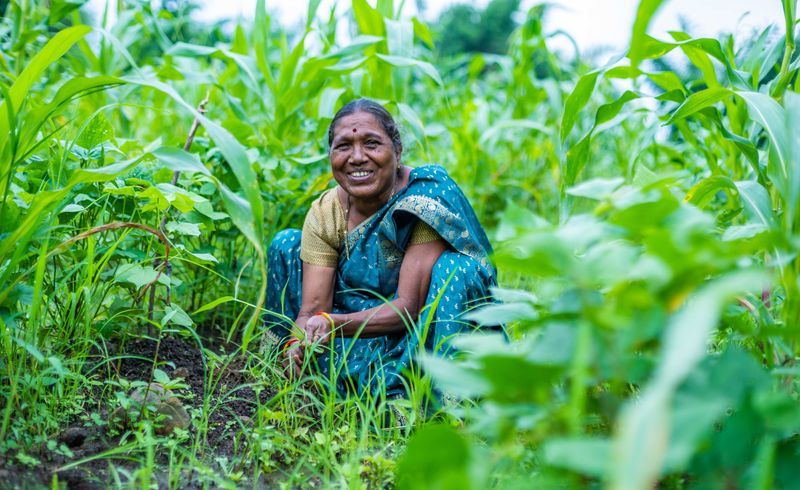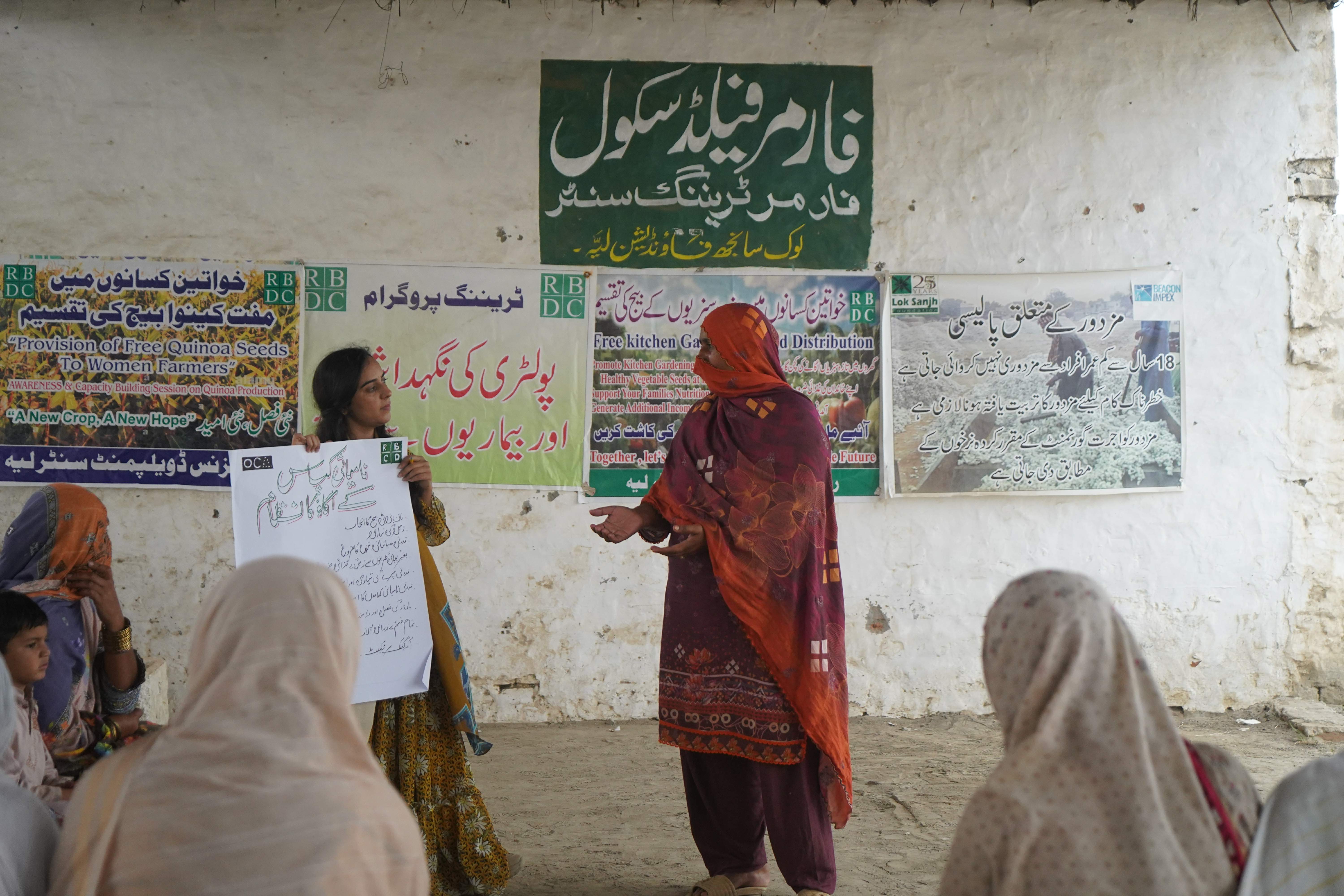back
back
our impact
04
Data as a driver for impact

High-quality data is essential to OCA’s mission. It allows us to track and demonstrate progress across our impact areas, inform improvements, and support Contributors and farmers with actionable insights. We have continued to strengthen our foundation of farm-level data by enriching farmer economic data with social and environmental metrics. This data also empowers sourcing brands to integrate credible metrics into their sustainability reporting, strengthening accountability and driving real impact where it matters most.
OCA’s first Life Cycle Assessment (LCA) study
OCA commissioned a Life Cycle Assessment (LCA) study highlighting the environmental benefits of organic cotton farming in India. Results were delivered in Q4 2024, published in 2025 and are available here. This unique work provides nuanced, region-specific insights into the environmental impacts of organic cotton production, offering a more accurate and locally grounded alternative to generic global LCA datasets.
Organic cotton is widely recognised for its environmental and social benefits, but to fully understand and quantify these advantages, region-specific data is crucial. The lack of localised, high-quality environmental data has long been a barrier to accurate impact assessments. Regionalised data better captures local farming practices, climate, and resource use, leading to more precise impact modelling than one-size-fits-all global averages. As the industry and policymakers increasingly demand localised and transparent environmental data for materials, OCA is well-positioned to deliver this granularity for organic cotton.
The regional study focused on India, where OCA works with over 100,000 farmers. Conducted by South Pole, a leading carbon asset developer and climate consultancy, the study analyses third-party validated data from over 18,000 farmers across three growing seasons (2020-2023) and three distinct irrigation contexts: rain-fed, heavily irrigated, and hybrid (systems where neither rainfall nor irrigation account for more than 70% of the total water supply). Covering five Indian states: Madhya Pradesh, Maharashtra, Odisha, Gujarat, and Telangana, this study captures local environmental impacts with greater accuracy than global averages can offer.
The primary objectives of OCA’s regional LCA included establishing a credible baseline cradle-to-ginning-gate assessment, enabling third-party verified environmental claims, and facilitating Scope 3 GHG reporting for OCA brands. OCA also aimed to improve its internal data collection and management for future LCAs and data monitoring.The results indicate that organic cotton farming consistently has a lower environmental footprint across various categories assessed, including climate change, water use, acidification, and eutrophication.

Hear from our Contributors
Greenhouse Gas (GHG) emissions accounting and reporting
We were proud to partner in the Unlock Programme, which drives the transition to lower-impact, regenerative cotton farming. Offering technical support and financial incentives, measuring emissions reductions, and promoting inclusive solutions, this initiative supports farmers in adopting climate-friendly practices. Early results from pilot projects in India and the show the potential of cross-industry collaboration to cut emissions and support sustainable farmer livelihoods.
As we move forward, we remain focused on data as both a source of truth and a tool for transformation—enabling OCA and our stakeholders to take informed, effective action in support of organic cotton farming systems. The insights gained from our regional LCA in India mark a pivotal step in shaping how the sector understands the environmental footprint of organic production in context-specific terms.

Social data: Stronger metrics on women’s contribution



